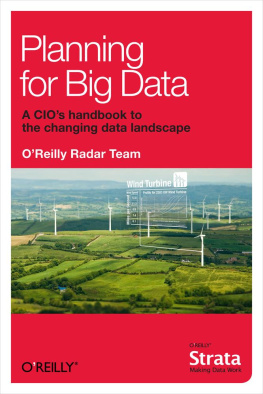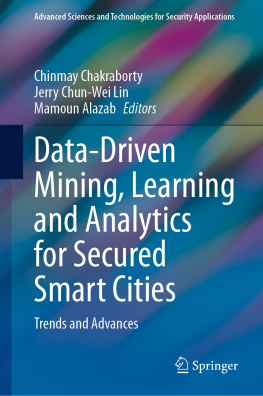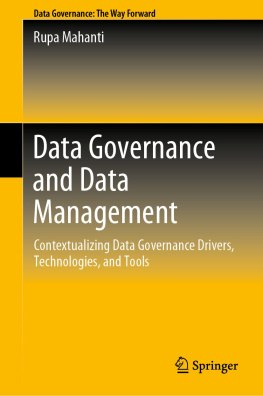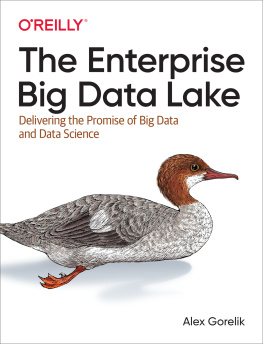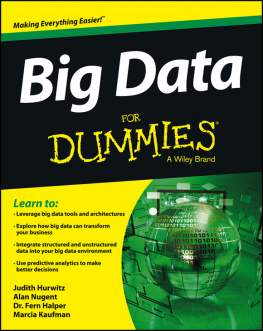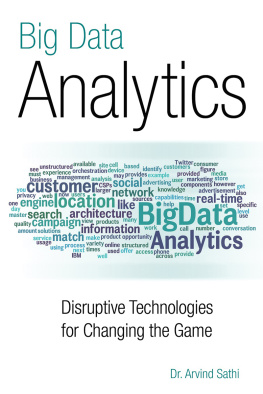Contents
Guide
Pagebreaks of the print version
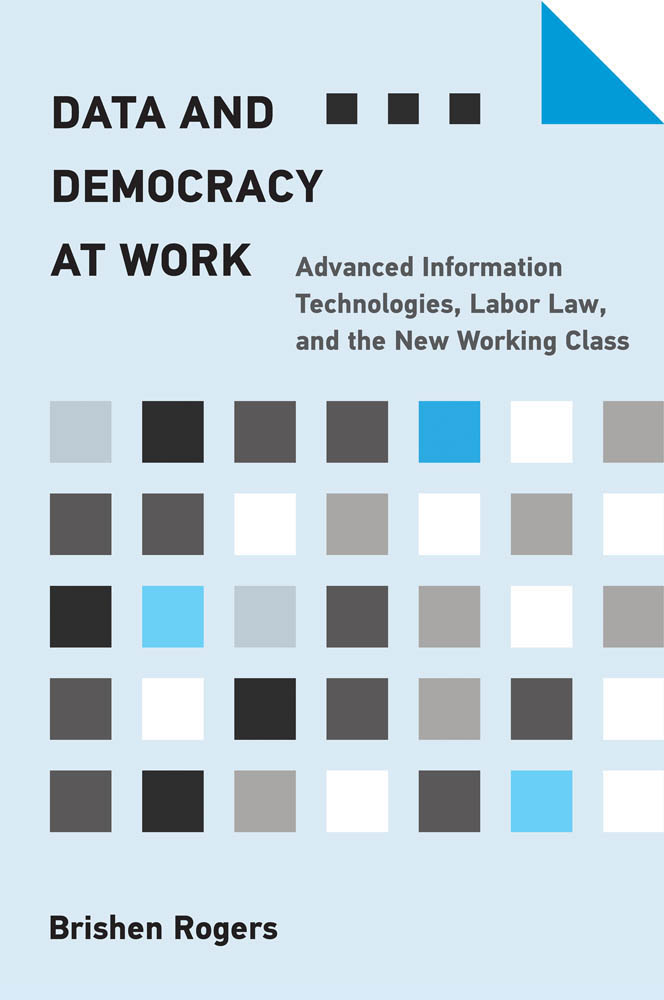
Data and Democracy at Work
Advanced Information Technologies, Labor Law, and the New Working Class
Brishen Rogers
The MIT Press
Cambridge, Massachusetts
London, England
2023 Massachusetts Institute of Technology
This work is subject to a Creative Commons CC-BY-ND-NC license.
Subject to such license, all rights are reserved.

The MIT Press would like to thank the anonymous peer reviewers who provided comments on drafts of this book. The generous work of academic experts is essential for establishing the authority and quality of our publications. We acknowledge with gratitude the contributions of these otherwise uncredited readers.
Library of Congress Cataloging-in-Publication Data
Names: Rogers, Brishen, author.
Title: Data and democracy at work : advanced information technologies, labor law, and the new working class / Brishen Rogers.
Description: Cambridge, Massachusetts : The MIT Press, [2023] | Includes bibliographical references and index.
Identifiers: LCCN 2022015330 (print) | LCCN 2022015331 (ebook) | ISBN 9780262545136 (paperback) | ISBN 9780262373364 (epub) | ISBN 9780262373357 (pdf)
Subjects: LCSH: Labor laws and legislationUnited States. | EmployeesEffect of technological innovations onUnited States.
Classification: LCC KF3319 .R64 2023 (print) | LCC KF3319 (ebook) | DDC 344.7301dc23/eng/20220831
LC record available at https://lccn.loc.gov/2022015330
LC ebook record available at https://lccn.loc.gov/2022015331
d_r0
For Fernanda, Simone, and Giovanni
Contents
Acknowledgments
I have been working on the research that informed this book for over five years now. Several of the chapters draw on previously published work, as indicated in the notes and bibliography. I am very grateful to have had the opportunity to present at many law schools and related venues. Those include presentations to the Bristol University Centre for Law and Work, the Work on Demand project at Glasgow University, the Oxford Reading Group on AI at Work, the Yale Private Law Theory Colloquium, the University of Texas Colloquium on Human Rights and Global Inequality, the University of Indiana Law Schools Center for Law, Society & Culture, and as the Douglas Cunningham Memorial Lecture in Labour Law at Queens University Law School, in Kingston Ontario, Canada. I also presented some of this work to faculty workshops at Washington University in St. Louis, Georgetown University Law Center, and the Cornell University School of Industrial and Labor Relations. In addition, I am thankful to have presented some of that work at conferences including the LPE Blog Workshop on the Political Economy of Technology at Yale Law School, the Hebrew University/Friedrich Ebert Stiftung Workshop on Social Media and Worker Organizing, the St. Louis University Symposium on Law, Technology, and the Organization of Work, and the Fordham Law School Conference on the Sharing Economy, as well as conferences sponsored by the Labor Law Group, the Labor Law Research Network, and the Association of American Law Schools.
I was also thankful to reach interdisciplinary audiences at various conferences. Those include events sponsored by the Andrea Mitchell Center for the Study of Democracy at the University of Pennsylvania, the Law and Public Affairs (LAPA) Program at Princeton University, the Association of Promotion of Political Economy and the Law (APPEAL), the Rutgers-Renmin Center for Global Work and Employment, the Society for the Advancement of Socio-Economics (SASE), and the Labor and Employment Relations Association (LERA). Several other organizations and think tanks also hosted presentations, including the Federal Reserve Bank of Philadelphia, the Economic Policy Institute, the Ford Foundation, the Washington Center for Equitable Growth, and the Korean Development Agency.
Academic research takes place within communities, and many colleagues graciously helped me work through these ideas, providing specific comments on drafts of this book and earlier works. Those include Einat Albin, Ifeoma Ajunwa, Kate Andrias, Kate Bahn, Richard Bales, Yochai Benkler, Matthew Bodie, Alan Bogg, Ricardo Buendia, Brian Callaci, Anupam Chander, Deborah Chasman, Joshua Cohen, Julie Cohen, Guy Davidov, Manoj Dias-Abey, Matthew Dimick, Ruth Dukes, Jeffrey Dunoff, Cynthia Estlund, Matthew Finkin, Michael Fischl, Catherine Fisk, William Forbath, Charlotte Garden, David Hoffman, Jason Jackson, Amy Kapczynski, Tammy Katsabian, Pauline Kim, Karl Klare, Karen Levy, Wilma Liebman, Rakeen Mabud, Daniel Markovits, Salil Mehra, Lawrence Mischel, Guy Mundlak, Paul Ohm, Sanjukta Paul, Frank Pasquale, Jeremias Prassl, Sabeel Rahman, Valerio De Stefano, Katherine Stone, Kathleen Thelen, Dorian Warren, and Noah Zatz. Many apologies for anyone I have missed.
I am also extremely grateful to Emily Taber at MIT Press for taking on this project and guiding me through it. She was unfailingly kind and helpful through the entire process despite many delays on my part. I would also like to thank several anonymous reviewers for MIT Press, whose comments on both my original book proposal and my first complete draft were invaluable. Kendra Bozarth, Audra Wolfe, and Betsy Kuhn provided superb editorial assistance, as did, Marcy Ross at MIT Press and Susan McClung and Helen Wheeler at Westchester Publishing Services. Justin Moyer provided outstanding research assistance. Most of this work was undertaken while I was on the faculty at Temple University, and I would like to thank JoAnne Epps, Greg Mandel, Rachel Rebouche, and others at Temple for their unflagging support. I completed the book while on the faculty of the Georgetown University Law Center, and I would like to thank Dean William Treanor and Research Dean Lilian Faulhaber for their support. The Roosevelt Institute also provided financial assistance for a time and published both a working paper on the political economy of workplace technology, and a report on labor law reform that I cowrote with Kate Andrias.
Finally, I owe the greatest debt to my wife, Fernanda Nicola, who helped me refine these ideas over the years, pressed me to finish the project, and at great personal sacrifice took over all parental responsibilities for long periodsincluding during COVIDso I could finish this manuscript. This book is dedicated to her and our two children, Simone and Giovanni.
Introduction
COVID and the Technological Class Divide
COVID-19 upended the American economybut not its class, gender, and racial hierarchies. While the coronavirus did not discriminate based on income or race, exposure, complications, and death skewed heavily along those lines. A major factor in individuals total risk was whether they could work remotely, which revealed a longstanding technological class divide. Under social distancing mandates, professionals retreated to their homes or second homes, using new videoconferencing platforms to keep workingdesigning products, analyzing data, writing legal briefs, coordinating strategies, and so on. This was especially trying for parents who had to care for children as they did their own jobs, and the burdens of childcare fell disproportionately on women. Yet professionals had it comparatively easy. Their relative comforts depended on armies of low-wage workers in a vast service economy, who had to perform their jobs in person. Those workers, who are disproportionately nonwhite, had a very different relationship with technology. Rather than using it to create goods and services or to manage enterprises, those workers were often managed


